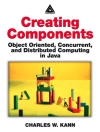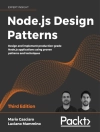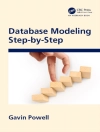This Second Volume in the series Handbook of Dynamic Data Driven Applications Systems (DDDAS) expands the scope of the methods and the application areas presented in the first Volume and aims to provide additional and extended content of the increasing set of science and engineering advances for new capabilities enabled through DDDAS. The methods and examples of breakthroughs presented in the book series capture the DDDAS paradigm and its scientific and technological impact and benefits. The DDDAS paradigm and the ensuing DDDAS-based frameworks for systems’ analysis and design have been shown to engender new and advanced capabilities for understanding, analysis, and management of engineered, natural, and societal systems (“applications systems”), and for the commensurate wide set of scientific and engineering fields and applications, as well as foundational areas. The DDDAS book series aims to be a reference source of many of the important research and development efforts conducted under the rubric of DDDAS, and to also inspire the broader communities of researchers and developers about the potential in their respective areas of interest, of the application and the exploitation of the DDDAS paradigm and the ensuing frameworks, through the examples and case studies presented, either within their own field or other fields of study.
As in the first volume, the chapters in this book reflect research work conducted over the years starting in the 1990’s to the present. Here, the theory and application content are considered for:
- Foundational Methods
- Materials Systems
- Structural Systems
- Energy Systems
- Environmental Systems: Domain Assessment & Adverse Conditions/Wildfires
- Surveillance Systems
- Space Awareness Systems
- Healthcare Systems
- Decision Support Systems
- Cyber Security Systems
- Design of Computer Systems
表中的内容
The Dynamic Data Driven Applications Systems (DDDAS) Paradigm and Emerging Directions.- Dynamic Data Driven Applications Systems and Information-Inference Couplings.- Polynomial Chaos Expansion Based Nonlinear Filtering for Dynamic State Estimation.- Measure-Invariant Symbolic Systems for Pattern Recognition and Anomaly Detection.- Equation–Free Computations as DDDAS Protocols for Bifurcation Studies: A Granular Chain Example.- A Stochastic Dynamic Data-Driven Framework for Real-time Prediction of Materials Damage in Composites.- Dynamic Data-Driven Monitoring of Nanoparticle Self Assembly Processes.- From Data to Decisions: A Real-Time Measurement -Inversion-Prediction-Steering Framework for Hazardous Events and Structural Health Monitoring.- Bayesian Computational Sensor Networks: Small-Scale Structural Health Monitoring.- A Dynamic Data Driven Sensor Tasking with Application of Aerospace Systems.- Dynamic Data-Driven Application Systems for Reservoir Simulation-Based Optimization: Lessons Learned and Future Trends.- DDDAS within the Oil and Gas Industry.- A Simulation-Based Online Dynamic Data-Driven Framework for Large-Scale Wind-turbine Farm Systems Operation.- Towards Dynamic Data Driven Systems for Rapid Adaptive Interdisciplinary Ocean Forecasting.- Towards Cyber-Eco Systems: Networked Sensing, Inference and Control for Ecological and Agricultural Systems.- An Energy-Aware Airborne Dynamic Data-Driven Application System for Persistent Sampling and Surveillance.- Using Dynamic Data Driven Cyberinfrastructure for Next Generation Wildland Fire Intelligence.- Autonomous Monitoring of Wildfires with Vision-Equipped UAS and Temperature Sensors via Evidential Reasoning.- Airborne Fire Detection and Modeling using Unmanned Aerial Vehicles Imagery: Datasets and Approaches.- DDDAS-based Remote Sensing.- Advances in Domain Adaptation for Aerial Imagery.- Retrospective Cost Parameter Estimation with Application to Space Weather Modeling.- A Dynamic Data Driven Approach to Space Situational Awareness.- Data driven cancer research with digital microscopy and Pathomics.- Robust Data Driven Region of Interest Segmentation for Breast Thermography.- Adaptive Data Stream Mining (DSM) Systems.- Deception Detection in Videos using Robust Facial Features with Attention Feedback.- Manufacturing the Future via Dynamic Data Driven Applications Systems (DDDAS).- DDDAS in the Social Sciences.- Anomaly-Detection Defense against Test-Time Evasion Attacks on Robust DNNs.- Dynamic Data-Driven Approach for Cyber Resilient and Secure Critical Energy Systems.- Dynamic Network-centric Multi-cloud Platform for Real-Time and Data-Intensive Science Workflows.- INDICES: Applying DDDAS Principles for Performance Interference‐aware Cloud‐to‐Fog Application Migration.- Adaptive Routing for Hybrid Photonic-Plasmonic (Hy PPI) Interconnection Network for Manycore Processors using DDDAS on the Chip.
关于作者
Frederica Darema, Ph D, is President and CEO of the Info Symbiotic Systems Society. She has retired as Senior Executive Service (SES) member and Director of the Air Force Office of Scientific Research, Arlington, Virginia, where she led the entire basic research investment for the AF, and she concurrently served as Research Director in the Air Force’s Chief Data Office, and as Associate Deputy Assistant Secretary at the Air Force Office for Science, Technology and Engineering. Prior career history includes research staff positions at the University of Pittsburgh, Brookhaven National Laboratory, and Schlumberger-Doll; management and executive-level positions at the T. J. Watson IBM Research Center and the IBM Corporate Strategy Group, the National Science Foundation, and the Defense Advanced Research Projects Agency; and director of the AFOSR Directorate for Information, Math, and Life Sciences. Dr. Darema, Ph D in nuclear physics, is a Fellow of the Institute of Electrical and Electronics Engineers (IEEE), among other professional recognitions. In 1983, she pioneered the SPMD computational model which is the predominant model for parallel (super)computing; and in 1980, she pioneered the DDDAS paradigm, and since 2000 she has organized and led research initiatives, programs, workshops, conferences (including the biannual DDDAS/Info Symbiotic Systems Conference series, co-led with co-editors: Blasch, Ravela, and Aved; 2016-present), and other forums to foster and promote DDDAS-based science and technology advances.
Erik P. Blasch, Ph D, is a Program Officer with the Air Force Office of Scientific Research. His focus areas are in multi-domain (space, air, ground) data fusion, target tracking, pattern recognition, and robotics. He has authored 750+ scientific papers, 22 patents, 30 tutorials, and 5 books. Recognitions include the Military Sensing Society Mignogna leadership in data fusion award, IEEE Aerospace and Electronics Systems Society Mimno best magazine paper award, IEEE Russ bioengineering award, and founding member of the International Society of Information Fusion (ISIF). Previous appointments include adjunct associate professor at Wright State University, exchange scientist at Defense Research and Development Canada, and officer in the Air Force Research Laboratory. Dr. Blasch is an associate fellow of AIAA, fellow of SPIE, and fellow of IEEE.
Sai Ravela, Ph D, directs the Earth Signals and Systems Group (ESSG) in the Earth Atmospheric and Planetary Sciences (EAPS) Department at the Massachusetts
Institute of Technology. In addition, he is presently an Engineering Fellow at Cytonome conducting Cell Imaging & Biofluidic Control R&D, he is a co-Founder of Windrisktech LLC, quantifying Hurricane-induced Risk in a changing climate. Dr. Ravela’s primary interests are in statistical pattern recognition, stochastic nonlinear systems science, and computational intelligence, withapplication to earth, planets, climate, and life. Dr. Ravela introduced new methods for coherent fluid dynamical regimes, applying them to DDDAS-based observing systems of localized atmospheric phenomena, laboratory studies, and wildlife. He has advanced learning-based approaches to DDDAS, and introduced the ensemble-based informative approach for DDDASbased learning and hybrid stochastic systems. Dr. Ravela is the recipient of the MIT 2016 Infinite Kilometer award for exceptional research and mentorship. Dr. Ravela organized the Dynamic Data Driven Environmental Systems Science Conference (Dy DESS 2014, Cambridge), and has co-organized all DDDAS conferences (2016-2022).
Alex J. Aved, Ph D, is a Senior Researcher with the Air Force Research Laboratory, Information Directorate, Rome, NY, USA. His research interests include multimedia databases, stream processing (via CPU, GPU, or coprocessor), and dynamically executing models with feedback loops incorporating measurement and error data to improve the accuracy of the model. He has published over 50 papers and given numerous invited lectures. Previously, he was a programmer at the University of Central Florida and database administrator and programmer at Anderson University.












